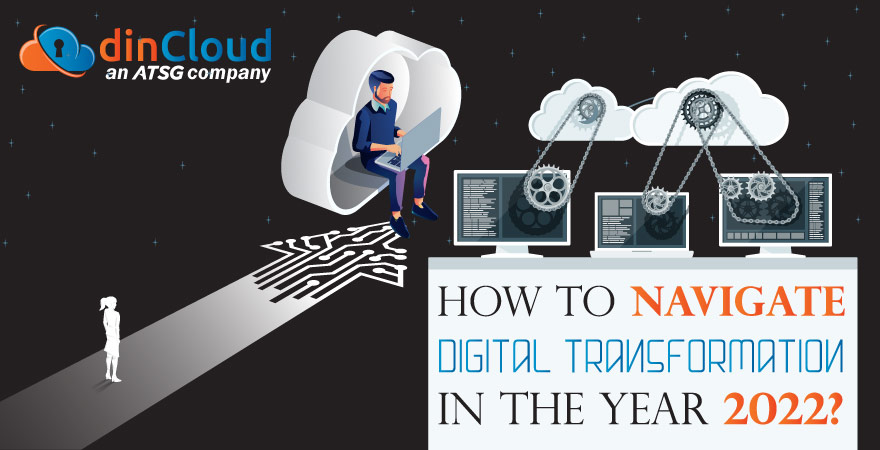Every other day, we witness new digital technologies on the horizon. Within the digital space, things are happening so fast that at times, one loses track of what all is happening. Still, every enterprise wants a piece of the action, when it comes to digitalization.
In the present day and age, when digital technologies have made in-roads in nearly every walk of our personal and professional lives, it is becoming increasing difficult to clearly define digital transformation, and how to achieve it successfully for your enterprise.

Put in the simplest terms, digital transformation is the process of using various digital technologies out there to extract maximum efficiencies and benefits for your enterprise or business. While this is easier said than done, a systematic approach solves many hurdles.
In this post, we will outline some of the most essential facets of digital transformation initiatives. These are in no particular order, as every enterprise will have to view them in the specific context of the industry concerned, and the organization itself.
IT Uplift / Capacity Building
You can consider the IT infrastructure of your enterprise as the very backbone of your digital transformation initiatives. The present needs of day to day operations, and a tech savvy workforce make IT uplift a strong contender as the right place to kick things off.
This sub-domain of digitalization can include the adoption of flexible and agile technologies like Cloud Computing. Cloud based solutions like Desktop as a Service (DaaS) enable you to really improve the agility and resilience of your IT infrastructure, without any fixed costs.
Digitizing Business Operations
Any business, whether big or small, has well defined processes to execute its day to day operations. The goal here is to replace the element of human involvement to as much extent as is possible within the system.
Digitalizing business operations brings uniformity in how things get done in an organization. The next step in this whole process is to target those organizational processes that can easily be automated by leveraging digital technologies.
This in turn will bring efficiency within the organizations, while also improving the quality of processes. All this can be made possible by leveraging the right set of digital technologies and tools for the task at hand, with the additional capability to automate where possible.
Digital Marketing
We have witnessed a rapid shift in consumer behaviors over the past few years. Even if we consider the pre and post pandemic worlds, there have been major shifts in how consumers are spending their dollars, and most importantly, where.
So, it is imperative for organizations pursuing successful digital transformation that they incorporate digital marketing channels and strategies. In the specific context of the Covid-19 pandemic, enterprises also need to make selling processes contactless.
The ability of enterprises to responsibly gather invaluable consumer data, and harness the insights from that data into actionable business strategies will give them a unique competitive edge in today’s fiercely competitive market structures.
New Ventures
Depending on the risk appetite of the top decision makers at each organization, this can mean a lot of different things. For one company, a new venture may be something as trivial as making the raw materials for its product in-house, instead of external purchasing.
For another enterprise, a new venture could entail setting foot in an entirely new industry or business area. What’s important is the ability of an enterprise to keep identifying newer opportunities for horizontal, vertical or lateral expansion.
The quicker and more effectively a company expands via digital technologies, the better will it be managing its overall risk in today’s highly uncertain environment. Designing new products and services for existing or new customers is a great way to add more value.
Conclusion
Every enterprise out there needs to view digital transformation within its own unique context. What is most important is the willingness to embrace new digital technologies and initiatives to create value for customers, and sustainability for the stakeholders.
If you are an enterprise that wants to leverage Cloud Computing for its digital transformation strategy, then dinCloud might just be the best place to start.


